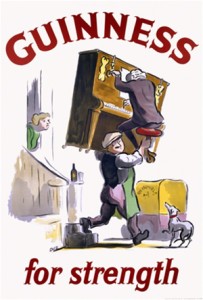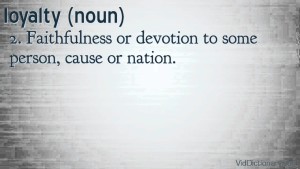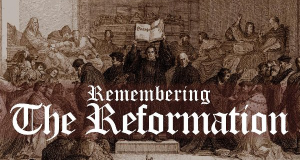 I recently picked up in a charity shop the McGrath biography of Jim Packer, the eminent leader of conservative evangelicalism in this country and across the world. It is in many ways a remarkable story, particularly in the way that it relates the story of Packer’s determination to remain part of the Church of England when many others wanted to separate off to form a pure version of the faith. Although he had developed firm Calvinist beliefs through his education and study, he recognised the importance of being part of an institution which contained people who did not think like he did. He believed, at least at the beginning of his ministry, that the Anglican Church could be changed from within. Latterly, (he is now 89) he has found himself outside the Anglican Communion and part of a dissident Anglican group in Canada.
I recently picked up in a charity shop the McGrath biography of Jim Packer, the eminent leader of conservative evangelicalism in this country and across the world. It is in many ways a remarkable story, particularly in the way that it relates the story of Packer’s determination to remain part of the Church of England when many others wanted to separate off to form a pure version of the faith. Although he had developed firm Calvinist beliefs through his education and study, he recognised the importance of being part of an institution which contained people who did not think like he did. He believed, at least at the beginning of his ministry, that the Anglican Church could be changed from within. Latterly, (he is now 89) he has found himself outside the Anglican Communion and part of a dissident Anglican group in Canada.
In many ways Jim Packer is an honourable theologian who, as the biography chronicles, has developed a theology for himself which resolved his own personal inner struggle to understand the meaning of God. I personally do not share his Calvinist solutions which he was able to articulate, particularly following his doctoral studies of the Anglican Puritan Divines of the 16th and 17th centuries. Packer himself began his theological formation during a period (the 1940s) in the Church of England when there were virtually no heavy-weight thinkers among the evangelical constituency. His theological position on such things as the meaning of the death of Christ, the infallibility of Scripture and the institution of the church drew, as we have indicated, extensively from his studies of writers of several centuries before, people like John Owen and Richard Baxter. Packer is able to put together in his writings a presentation of evangelical thought for his constituency, and this has had wide circulation, particularly in the absence of other suitable resources available for conservative evangelicals at that time. But there is one major problem in the way that this writer has been received and used by evangelicals in the Church of England and elsewhere. The problem is not with Jim Packer himself or his writings but in the way that the published work came to be used. Large number of people have come to identify with every word and argument, spoken or written, that has emerged from his mouth. I can remember hearing him speak at a Christian Union meeting in Oxford in 1964 and it was clear, even though I do not remember the content, that he was a powerful speaker. The influence of Packer was something more than that coming from a man proficient in rhetoric. As a college lecturer and later a theological college principal, Packer gathered to himself generations of students who wanted to become his disciples, or should we say, his clones. Such followers not only became dependent on him for their thinking and beliefs but they also expected everyone else in their circle to regard Packer’s version of Christian orthodoxy as the only valid one to follow.
In short, Jim Packer became a kind of guru for many people in the evangelical world of Britain in the 60s and 70s. By calling him a guru, we are not apportioning any blame on him. As far as he was concerned he was simply setting forth a version of evangelical Christian truth that he believed in and had the facility to articulate in a written and spoken form. The issue that I see is the way that the whole institution, here the conservative evangelical Christian world in Britain of the time, becomes hyper-dependent on one single individual. One person’s Christian orthodoxy, carved out of a particular personal journey of faith, suddenly becomes the standard for the faith of many. People in the evangelical world were proud to be the clones of the great Jim Packer. More sinisterly they looked down on others who were not, for whatever reason, inclined to follow this path.
I have in previous blog posts criticised the dynamic within a congregation that makes members subservient and obedient to their leaders. This dynamic effectively stops them growing in an individual and creative way. Deviation from the thinking and believing style of the leader is not tolerated. This we would describe as a form of cultic behaviour – intolerance towards difference. People are simply not allowed to grow or to change in a way that is not approved. The result is that a visitor to such churches or groups is met with a stereotyped language which describes the spiritual in identical ways. Some would claim that not only are these theology and praying styles identical, but also the displayed grins of the faces of members are somehow all very alike. Many people may feel safe in such an institution. They think they are being obedient to the injunction that Christians should think and feel like. Other Christians would find such an atmosphere utterly oppressive and they would not last very long in such a congregation.
The problem with the influence of an individual such as Jim Packer is, to repeat, not in his theology or his personality. I do not happen to agree with many, or even the majority, of the things he said but that is here not the point. What is the point is the way that the theological journey of one single individual should become dominating in the thinking and beliefs of so many others who do not share that pathway. Jim Packer single-handedly presented an influential defence of the words ‘inerrancy’ and ‘infallibility’ for Scripture as well as a restatement of many central Protestant doctrines. He was perfectly entitled to present these arguments and ideas as well as make the case for a conservative Calvinist position in these and other areas of theology. But having this particular way of doing theology disguises a profound weakness. The weakness is this particular presentation of Christian theology was conceived the mind of a single individual. While others, no doubt, read the manuscripts of his books prior to publication, there does not seem to have been any proper challenge or debate about these ideas. There was no process through which the central theses could be refined or qualified. In the absence of other theologians of Packer’s calibre among evangelicals of the time, his ideas were simply swallowed whole by the evangelical constituency and achieved a status of being words of near ultimate authority. If the evangelical world refused to challenge anything said by Packer, the non-evangelical world failed to engage with it at all. In the late 50s the ascendant liberal theological elite felt able to treat the theological goings on among evangelicals as not being worthy of attention. These ideas of the Puritan fathers were also not considered to be any more than of historical interest by the mainstream academic world. Liberal theological thinkers, then as now, would simply not engage with them directly. The liberal assumption is that theology, like any other branch of knowledge, has to engage with contemporary political and social forces. Lifting unmodified theological ideas direct from a period several hundred years before does not play much part in the process of producing a contemporary (liberal) dogmatic theology.
Jim Packer produced for his generation of evangelicals a tidy coherent set of teachings which had enormous influence. This was widely welcomed by the many who wanted a statement through which to express their evangelical faith. A failure to challenge these writings or enter into any kind of constructive dialogue with their limitations, has meant that the evangelical world has remained in some sense trapped and restrained by them. Other writers have arisen since Jim Packer, but the same uncritical expectation that a fashionable guru will define orthodoxy for the mass prevails. In other words the ordinary conservative Christian knows that he/she can depend on someone else to tell them what to believe. To stray from this defined orthodoxy is to be an apostate so few dare to question or criticise. That is a place of bondage. I myself and this blog continue to stand for the untidiness of theology as well the messiness of every individual journey towards truth and towards God. Scripture continues to be a major guide without needing words like ‘infallibility’ and inerrancy’ attached to it. In the last resort I hope to be judged not on whether I was a devoted follower of any particular Christian expositor of the faith like Jim Packer, but whether I used my intelligence, my spirituality and my devotion in discovering the will of God for my life as set out by Jesus.








